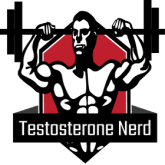Testosterone and breast cancer risk assessment is a topic of great interest among medical professionals and women worldwide. On the one hand, testosterone is known to be a crucial hormone for men’s well-being, but recent studies suggest that it might also play a pivotal role in women’s health.
For instance, testosterone levels affect a woman’s breast density, which is a key factor in mammography interpretation. In practical terms, this means that having too much testosterone in the body can lead to dense breasts, which can make it harder to detect small tumors.
Additionally, high testosterone levels have also been linked with an increased risk of breast cancer. However, the relationship between testosterone and mammography is not straightforward, and there are many nuances to consider.
Is it only high levels of testosterone that are problematic? How do other hormones, such as estrogen, interact with testosterone? What is the optimal time to test testosterone levels, and how often should women get screened? These are some of the questions that this article seeks to address, as we delve deeper into the fascinating world of testosterone and its impact on women’s health.
Understanding Testosterone Levels in Women
Understanding testosterone levels in women can be puzzling, especially when it comes to mammography results. Elevated testosterone in women can affect breast tissue, potentially leading to abnormal mammogram findings.
While it’s commonly known that testosterone is largely a male hormone, it’s also produced in smaller amounts in women’s ovaries and adrenal glands. However, some women can have higher-than-normal levels of testosterone for various reasons, including polycystic ovary syndrome (PCOS).
Women with elevated testosterone levels may be at higher risk for certain health issues, including breast cancer. It’s important for women to discuss their testosterone levels with their healthcare provider and closely monitor their mammogram results.
While there isn’t a clear-cut answer on how exactly testosterone impacts mammography results, this connection highlights the importance of understanding and managing hormonal levels as part of overall breast health.
Did you know?
Women with current use of PMHs (postmenopausal hormone therapy) with testosterone for less than five years had an 81% increased risk of breast cancer, while those using this therapy for five years or more were at a nonsignificant 96% increased risk compared with never users.
How Testosterone Affects Breast Tissue
Understanding testosterone and breast cancer screening is crucial for women as they navigate their healthcare. While most people associate testosterone with men, it also plays a role in women’s breast tissue.
According to recent studies, women with higher levels of testosterone might be at a higher risk for breast cancer. This may be due to the fact that testosterone stimulates the growth of breast cells, which can lead to abnormal growths that can potentially turn cancerous.
However, it’s important to note that testosterone is not the sole factor that contributes to breast cancer, as there are many other risk factors such as age, family history, and lifestyle.This is where mammography comes in as a critical preventative screening tool.
Mammograms use low-dose x-rays to detect any abnormalities in the breast tissue, which can then be further examined and potentially treated. However, it’s important to note that mammograms are not foolproof and have certain limitations, such as the fact that they can miss smaller tumors or fail to detect some cancers altogether.
To better understand the connection between testosterone and mammography, it’s crucial to work with medical professionals who can help tailor your breast cancer screening options to your individual needs. By understanding your risk factors, hormone levels, and other health indicators, you can make informed decisions about your healthcare and potentially catch any abnormalities early on.
So, whether you’re male or female, it’s worth learning more about testosterone and its impact on breast tissue to empower yourself as you navigate the complex world of healthcare.
Impact of Testosterone on Mammograms
When it comes to breast cancer screening, mammograms have long been the gold standard. But what happens when testosterone enters the equation? Recent research suggests that higher levels of testosterone in women could impact the accuracy of mammograms.
This is particularly concerning for women with conditions that contribute to hormonal imbalances, such as polycystic ovary syndrome (PCOS). Although the link between testosterone and mammography is not yet fully understood, it is clear that it’s an area that requires further investigation.
The implications of this research could be significant, especially for women who rely on mammograms as a key component of their breast health regimen. As we continue to learn more about the connection between hormonal imbalance and breast screening, it’s vital that women stay informed and engage in an ongoing conversation with their healthcare providers.
Risks and Benefits of Mammography in Women with Higher Testosterone Levels
Breast cancer is a major concern for women worldwide. Mammography is the gold standard screening tool for early breast cancer detection, but the role of testosterone in breast cancer detection is a topic that has been underexplored.
Recent studies have shown that women with higher testosterone levels may have a lower risk of breast cancer, but are also more likely to have false-positive mammogram results, leading to unnecessary biopsies and anxiety. The reason for this connection is not yet fully understood.
However, it is important for women with higher testosterone levels to discuss their risk factors with their healthcare provider and consider alternative screening methods, such as ultrasound or MRI, which may be more effective in detecting breast cancer in these individuals. As research continues to uncover the complexities of the connection between testosterone and mammography, women must advocate for their own health and make informed decisions about their breast cancer screening options.
Recommendations for Women with High Testosterone Levels
When it comes to breast cancer screening for women with polycystic ovarian syndrome (PCOS), it’s important to understand the connection between testosterone and mammography. High levels of testosterone, a hormone associated with PCOS, can increase breast density and make it more difficult to detect tumors on a mammogram.
That’s why it’s crucial for women with PCOS to talk to their healthcare provider about their risk factors and to consider starting mammograms at an earlier age. It’s also important to note that PCOS is a complex condition with a wide range of symptoms and potential health implications, so personalized care is key.
Ultimately, by staying informed and proactive about breast health, women with PCOS can take charge of their well-being and reduce their risk of developing breast cancer.
Did you know?
Testosterone therapy can cause side effects, including acne, breast enlargement, and an increased risk of blood clots and heart disease.
Conclusion: Importance of Mammography for Early Detection
As women, we have been told time and time again the importance of getting regular mammograms. However, did you know that your testosterone levels can play a role in the accuracy of these tests? It’s true- according to recent research, women with higher levels of testosterone may have a higher risk of getting a false-negative mammogram result.
This is because testosterone can cause the breast tissue to become denser, making it more difficult for abnormalities to be detected. But don’t let this deter you from getting screened! Mammography is still an essential tool for early detection of breast cancer, and there are specific guidelines for women with high testosterone levels.
So, take charge of your health and talk to your doctor about the best screening options for you. Remember, early detection can save lives.
I've been fascinated by natural male hormone optimization since 2016. And ever since I've been going through boatloads of different meta-analyses and scientific data associated with increasing testosterone levels naturally. I hold a PhD degree in public health and have 10+ scientific publications on Google Scholar. Thus, in my collective work here you'll find helpful tricks, natural remedies, detailed product reviews (including stuff I've personally tried)... and more!






